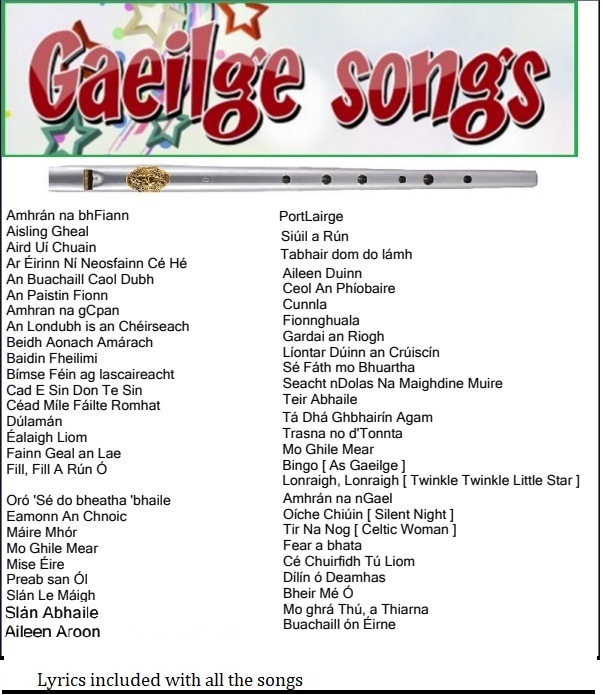Irish / Gaeilge Songs For Tin Whistle
Ebook of Irish / Gaeilge Songs For Tin Whistle. Over 40 well known songs with lyrics and finger position sheet music chart for ever song. Ideal for the school classroom as many of the songs are suitable for children of all ages.
The price is €6.90 and you'll be directed to a download page after payment.
Lots of old favorites like : Dílín Ó Deamhas, An Paistin Fionn, Lonraigh Lonraigh [Twinkle Twinkle Little Star,] and Tir na nog.
Also included are Aileen Duinn, Ceol An Phíobaire, Cunnla, Fionnghuala, Gardai an Riogh, Líontar Dúinn an Crúiscín, Sé Fáth mo Bhuartha, Seacht nDolas Na Maighdine Muire, andTeir Abhaile
The price is €6.90 and you'll be directed to a download page after payment.
Lots of old favorites like : Dílín Ó Deamhas, An Paistin Fionn, Lonraigh Lonraigh [Twinkle Twinkle Little Star,] and Tir na nog.
Also included are Aileen Duinn, Ceol An Phíobaire, Cunnla, Fionnghuala, Gardai an Riogh, Líontar Dúinn an Crúiscín, Sé Fáth mo Bhuartha, Seacht nDolas Na Maighdine Muire, andTeir Abhaile

